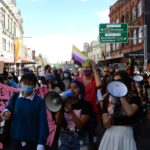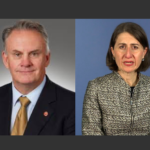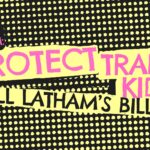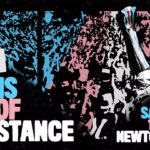Latham’s Religious Freedoms Laws Entrench Discrimination: An Interview Greens MP Jenny Leong
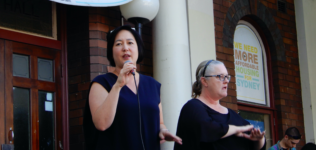
A lot of people are scratching their heads this week over how it came to be that NSW One Nation leader Mark Latham’s Religious Freedoms and Equality Bill 2020 went through the parliamentary review process and came out the other side being endorsed by the majority of committee members.
The One Nation legislation seeks to amend the Anti-Discrimination Act 1977 (NSW) (the Act), so that it privileges religion over all other attributes protected in law. These include race, sex, sexuality, gender and disability.
To give a clearer idea of the line being pushed by Latham, in his second reading speech on the bill, he said, “every letter of the alphabet has a flag, a network, a special ceremony to affirm and celebrate its identity, except for the letter C and H: Christians and heterosexuals”.
And as NSW Greens MP Jenny Leong made clear following the 31 March release of the report, the idea that a political party like One Nation – with a long history of blatant Islamophobia – is somehow out to protect people of all religious faiths is ridiculous.
In bed with One Nation
The parliamentary committee recommends that the Berejiklian government introduces its own religious freedoms bill by the end of the year. And it suggests this should be based on the One Nation legislation, and it picked out key provisions to be mirrored in the Coalition bill.
Leong, Independent MP Alex Greenwich and Labor shadow attorney general Paul Lynch all dissented from the report’s recommendations.
Indeed, Leong and Greenwich sent a letter to NSW attorney general Mark Speakman recommending he “disregard” the report, as it “does not reflect the evidence”.
According to Leong, all those on the committee agreed that protecting NSW citizens from discrimination over their religious beliefs is an attribute missing from this state’s discrimination law. However, it seems that ultraconservative forces have seen this as a means to consolidate power.
And as the Coalition considers its own religious freedom laws, it does seem rather convenient that state Liberal Nationals are now following in the footsteps of their Canberra counterparts in prioritising religious protection laws that permit discrimination in the name of faith.
Bully boy tactics
Leong also stressed that during the review hearings, she was shocked by the behaviour of some MPs in regard to expert witnesses.
This included Latham having a go at Sydney University Professor Simon Rice. This saw the One Nation leader calling the law expert “disgraceful”, as Latham seemed to be upset that the professor had suggested similarities between his bill and the Christian Porter-drafted federal legislation.
The Greens spokesperson on sexuality and gender identity also cried foul over Latham suggesting that Dr Vijay Roach didn’t like “born again Christians”, as the doctor had been warning that these laws could lead to health professionals refusing treatment based on faith grounds.
Sydney Criminal Lawyers spoke to Jenny Leong about why Latham’s laws don’t fill the void for those of faith who need real protection, the conservative backlash over marriage equality and why we shouldn’t be following One Nation’s lead in building a fairer and more just society.
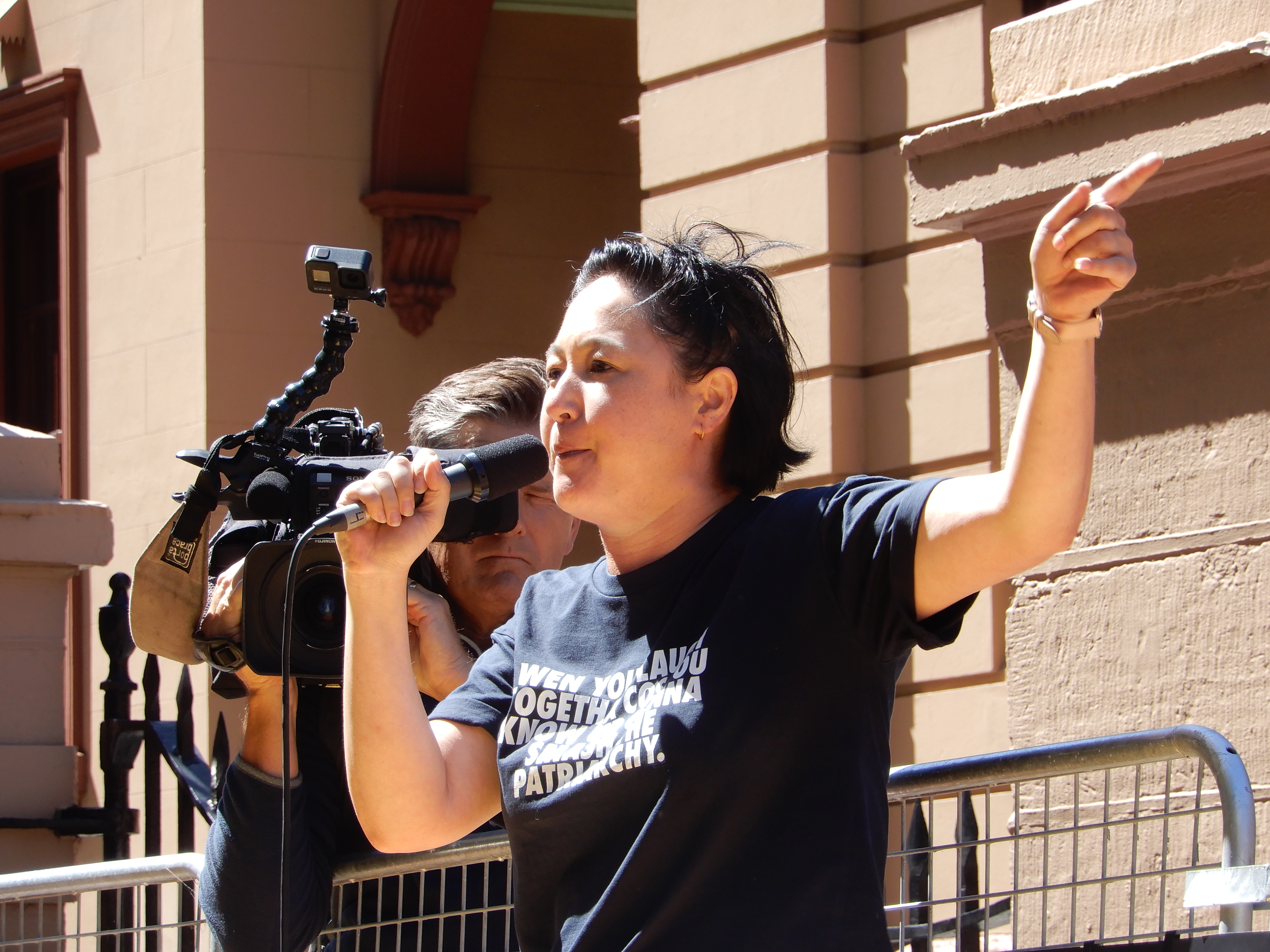
Firstly, last week, the majority of the committee inquiring into Mark Latham’s Religious Freedoms and Equality Bill recommended NSW parliament use it as a blueprint for its own legislation. You were one of the few committee members to oppose these laws.
Jenny, why are Latham’s proposed amendments to state anti-discrimination law problematic?
From the very start, the One Nation bill showed huge flaws. To have One Nation – a party that believes in banning the burqa and putting a halt to the development of mosques or Islamic schools – shows the absolute hypocrisy of it putting forward its so-called Religious Freedoms Bill.
The bill itself is flawed in a number of ways. But the primary concerns were the priority given, across the whole of the Anti-Discrimination Act, to issues of religious freedom and religious belief, over and above any of the other protected attributes in the Act.
So, you saw reference to protecting religious freedoms, beliefs and practices put front and centre of the bill, as a whole, not just in a section that related to religious freedoms.
So, what sort of impact does that have in undermining pre-existing protections?
There were huge concerns we heard from experts from the anti-discrimination field, the area of human rights and different community groups and organisations, including some religious groups.
These were around the serious unintended – or potentially intended, given its One Nation – consequences for the way that this bill would work in practice.
You would have a scenario where certain larger religions would potentially be able to discriminate against other religions.
So, religious organisations would be able to discriminate against more marginalised religions in their practices.
But, in addition, religious organisations would be able to act in a way where they would be able to take action claiming they were being discriminated against.
There’s no precedent for providing discrimination protection to organisations and groups as opposed to individuals – that’s just not how the Act works.
This is not how the area of discrimination law should work.
So, if that’s the case, how do we account for laws like this being put before parliament in 2021, and, not only that, but making it passed the review stage?
What we see here is a gap in our anti-discrimination laws that has opened up space for the likes of conservative, right-wing, bigoted MPs to advance their agenda for their own political power.
The gap that I am talking about is religion. This is something everybody on the committee agreed to, as well as the stakeholders that we heard from, that religious belief should be a protected attribute under the Anti-Discrimination Act.
We would all agree that it’s totally inappropriate for somebody to be discriminated against based on their religious beliefs.
But that should not be a free-for-all opening up of the idea that any person that has a religious belief – or any organisation that claims to have a religious belief – has the right to discriminate against anyone else as they choose.
That’s the distinction that we need to look at here. There’s a gap in our anti-discrimination law, as there is also around protection based on discrimination due to sex characteristics and discrimination against sex workers. There are changes that are needed to be made to these laws.
But the One Nation Bill doesn’t seek to do this. It seeks to legislate a way to enable religious people and organisations to discriminate without any regard for anyone else’s identity or the protected attributes that exist within the current Act.
In the wake of the release of the report, you remarked that during the inquiry hearings you felt it necessary to step in to protect some of the expert witnesses from the disrespect being shown by fellow committee members.
Can you speak on this?
The level of vitriol that was coming from members of the committee, who didn’t like to hear the criticism of the bill that they were supportive of, was truly remarkable and completely unacceptable.
To see the chair of the committee saying that the process was constructive and collaborative does not reflect the reality of the Hansard transcripts, or the reality of the expert witnesses.
The big problem with this is, the way that we shape laws in this state relies on the ability for expert witnesses to be able to come before parliamentary inquiries and share their expertise and their views, so we are able to make sure we are doing the best that we can for the people of NSW.
If people are reluctant to appear as witnesses because they know they’re going to be bullied and criticised publicly by members of parliament, they’re less likely to want to contribute to that process.
And that causes huge concerns for the diversity of views that we hear at inquiries, but, also, to the types of people that are confident and comfortable enough to step forward to give evidence at inquiries.
What about the links between the One Nation drafted laws and the push for similar religious freedom protections at the federal level: a campaign initiated by the prime minister?
Interestingly, that’s gone very quiet. As we know, that was something being driven by the former attorney general and he’s probably got other matters on his hands at the moment.
So, given the review has endorsed problematic laws, but gaps have been identified in local discrimination law, what would you recommend happens from here?
The recognition of the state responsibilities to protect people from discrimination because of their religious belief is something I am absolutely supportive of and all the members of the committee were supportive of.
The other part that got broadscale support was the need to recognise that our Anti-Discrimination Act needs a thorough statutory review. That is what’s needed here.
Hopefully, that’s what the attorney general seeks to do as a result of this disastrous committee process.
It was never going to do anything but suggest a hugely problematic way of empowering religious organisations to discriminate, which differs from the aims of the Act itself.
And lastly, Jenny, the push for religious freedoms is seen as a backlash to same-sex marriage laws. You were a key campaigner in seeing marriage equality legalised.
So, how do you feel about these responses coming from ultraconservatives over what amounts to extending a basic right to members of the community?
It’s pretty disgusting that some people are seeing the so-called protection of religious freedoms as a consolation prize for the fact that people weren’t able to win the “No” vote and ban people from being able to marry the person they love.
We need to move on from that. We need to recognise that protecting people from discrimination and the recognition of equality within the law are things that need to be prioritised.
The likes of One Nation driving this agenda, as I said at the beginning, is complete hypocrisy.
The best thing that we can do is to put One Nation and their representatives both in the federal and the NSW parliament to the side and to stop negotiating with them, because as a party they have racist and divisive policies.
We need to recognise the danger that this causes – not just to the LGBTIQ+ community, not just to the trans community – but to the broader diverse community in Australia, in NSW and in Sydney.


